Spelling practice Normal Alphabet Worksheets for Ages 4-7
45 filtered results
-
From - To
Boost your child's spelling skills with our Spelling Practice Normal Alphabet Worksheets designed for ages 4-7. Each worksheet provides engaging activities that help young learners master the alphabet, recognize letters, and practice spelling simple words. Through fun and interactive exercises, children develop their vocabulary, enhance their phonetic awareness, and build a strong foundation for reading and writing. Perfect for classroom use or home practice, these worksheets make learning an enjoyable experience. Give your child the tools they need to succeed and watch their confidence soar with our expertly crafted spelling practice worksheets.


Rhyming Words: Assessment Worksheet
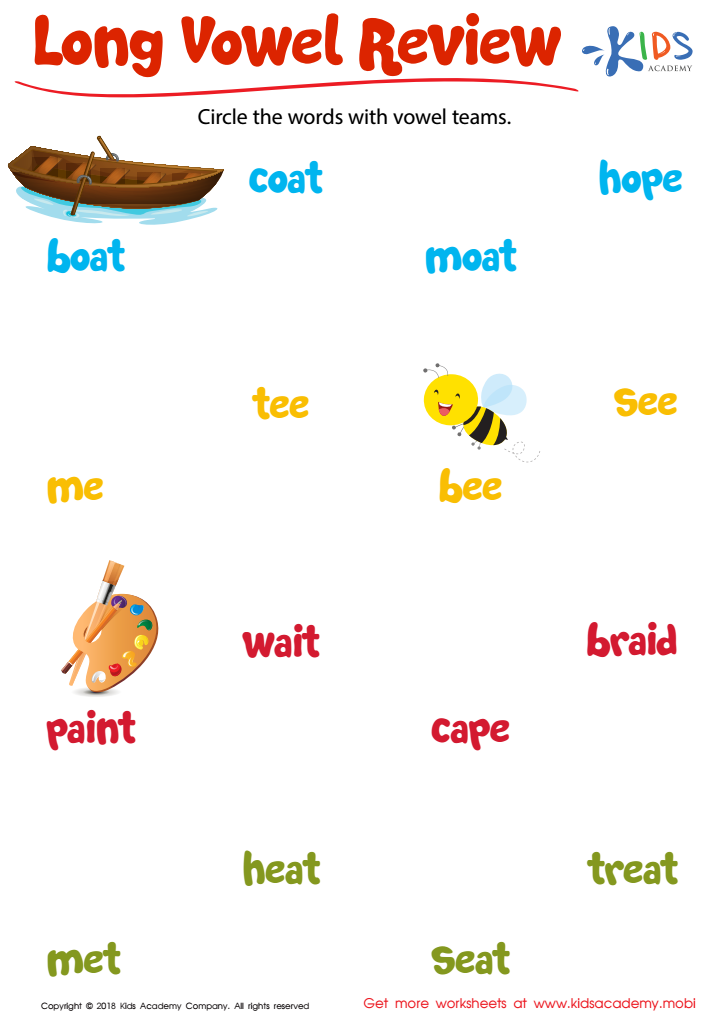

Long Vowel Review Worksheet
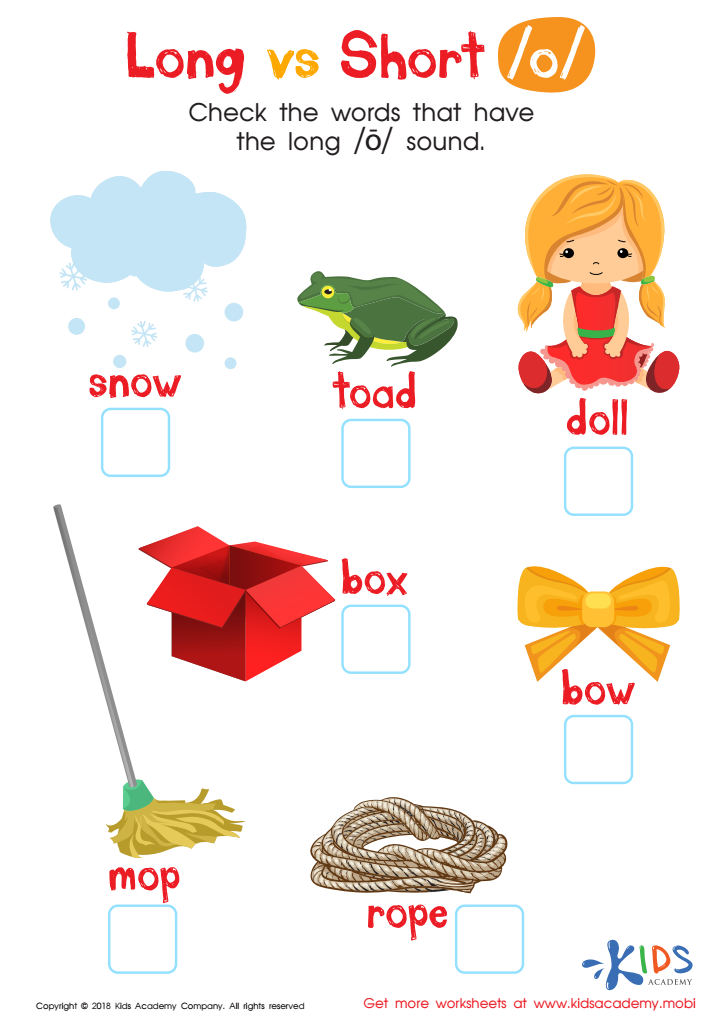

Long vs Short O Reading Worksheet
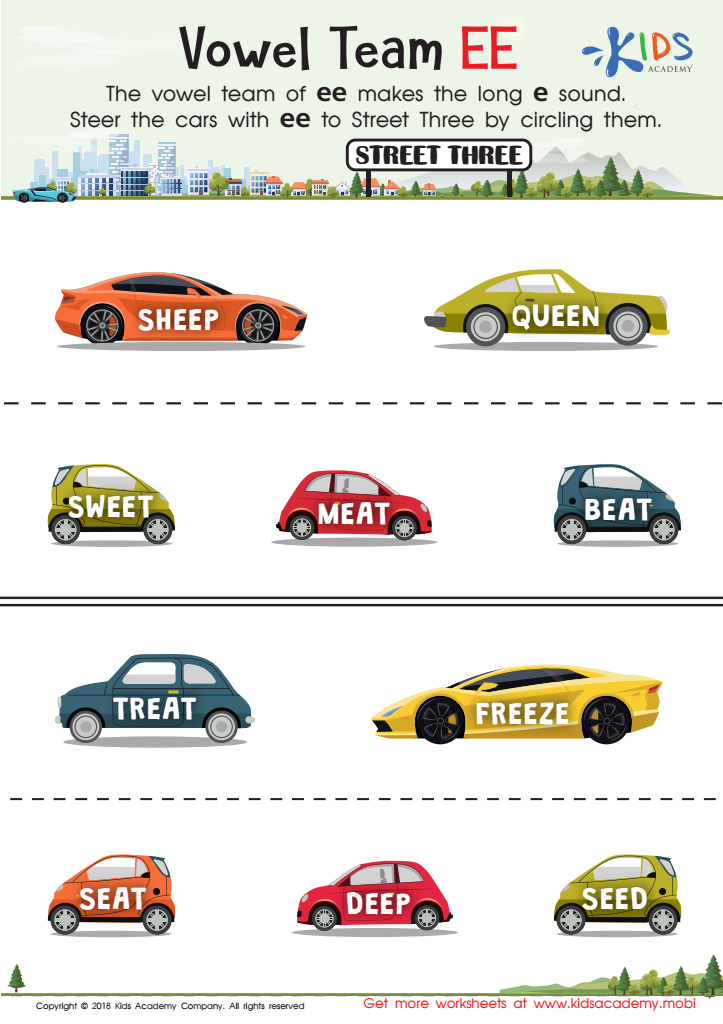

Vowel team ee Worksheet


Let's Check Long Vowels: Assessment Worksheet
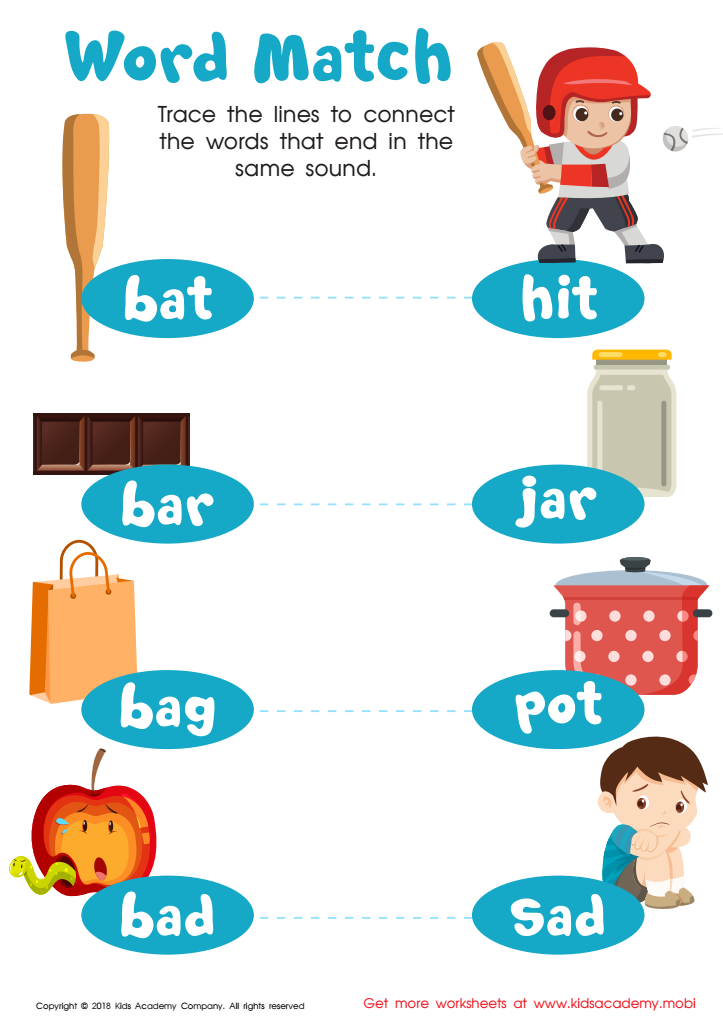

Word Match Reading Worksheet
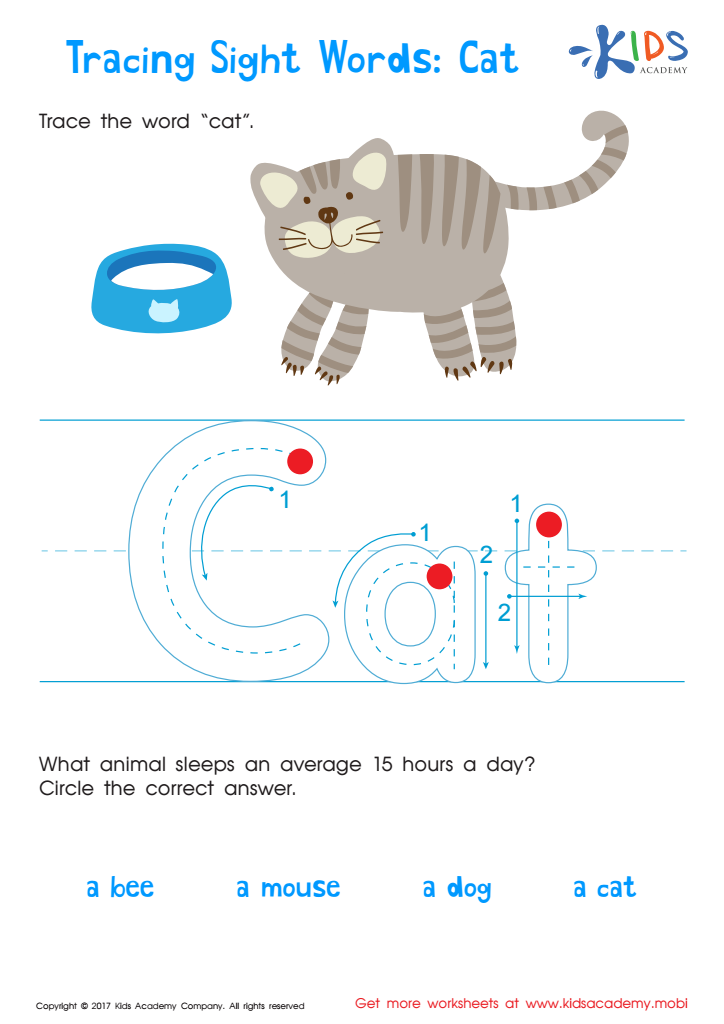

Cat Printable Sight Words Worksheet
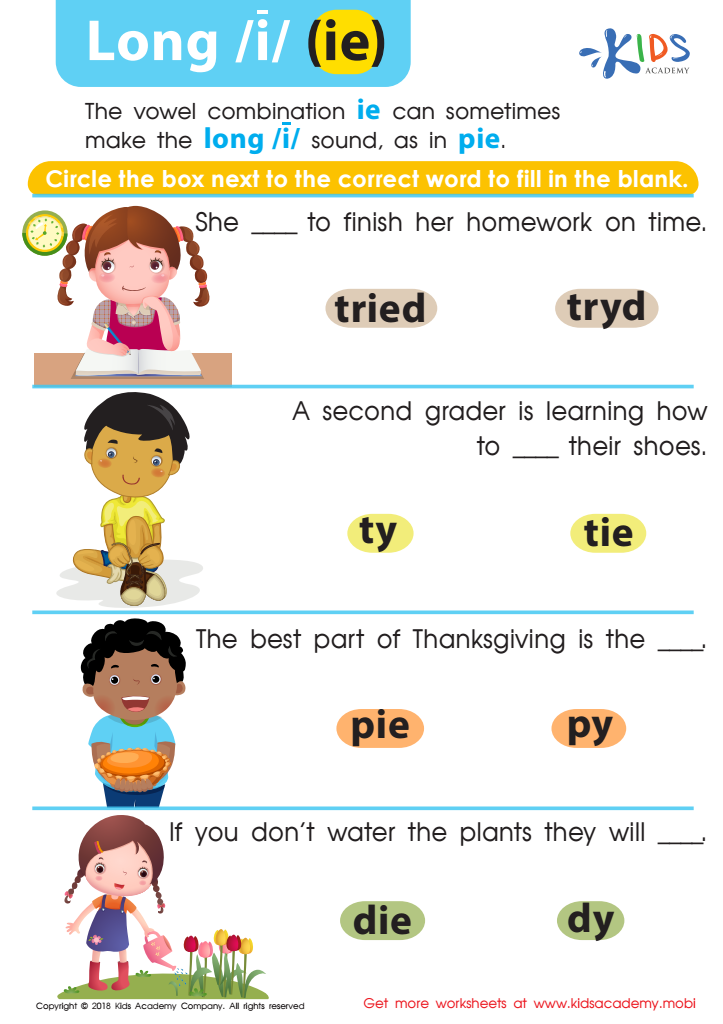

Reading: Long I and IE Worksheet
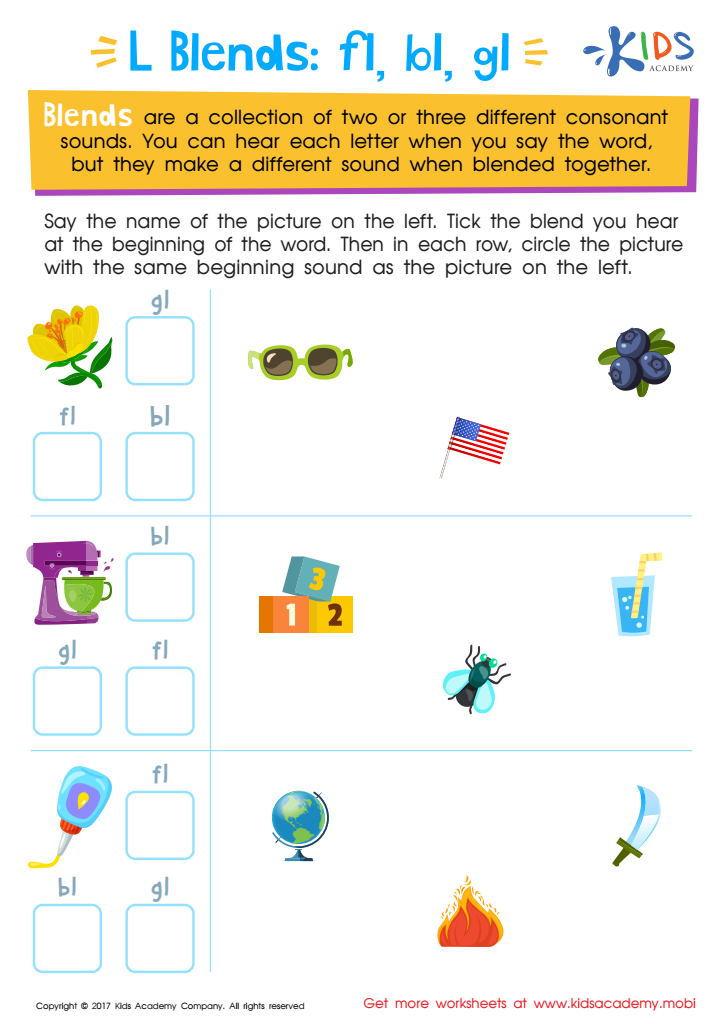

Blending Consonants: "Fl", "Bl" and "Gl" Printable
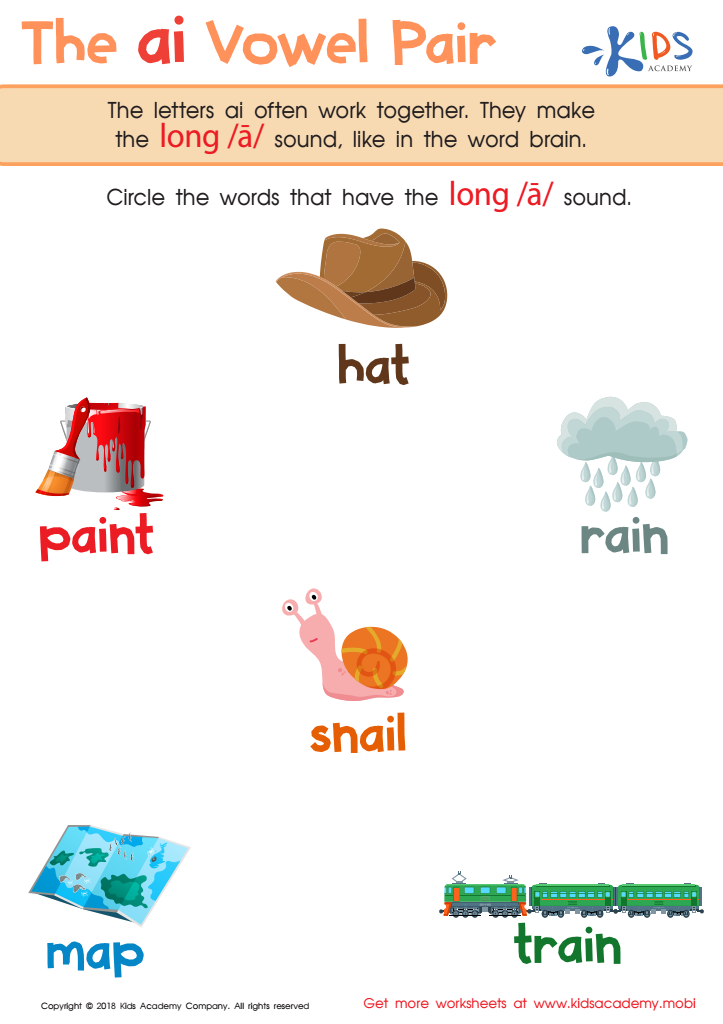

The AI Vowel Pair Worksheet
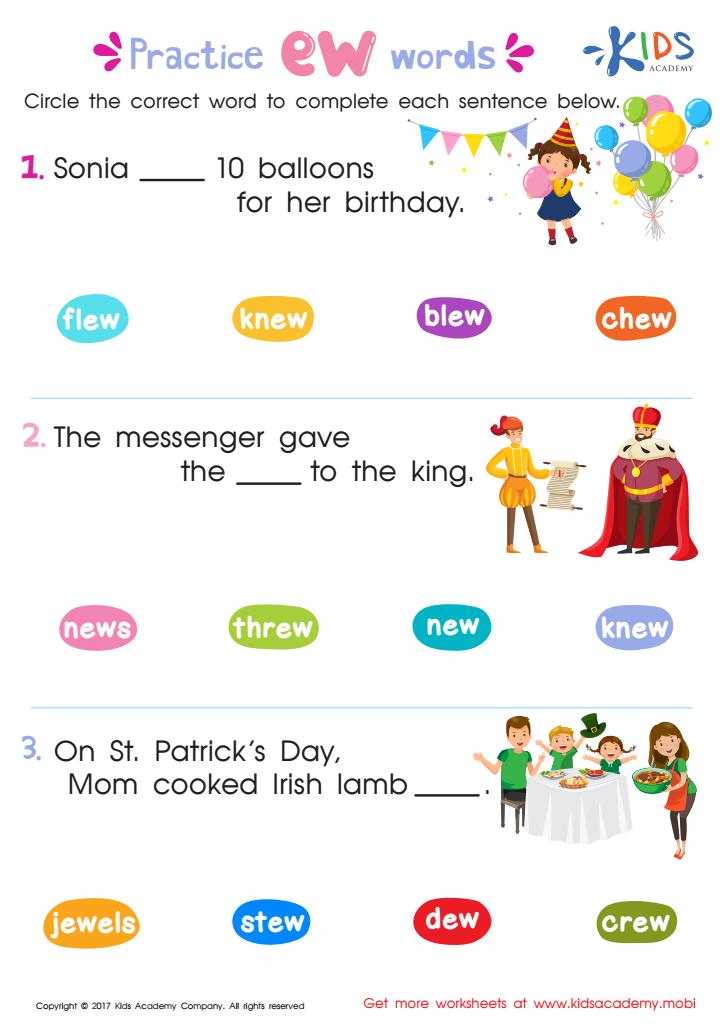

EW Words Worksheet
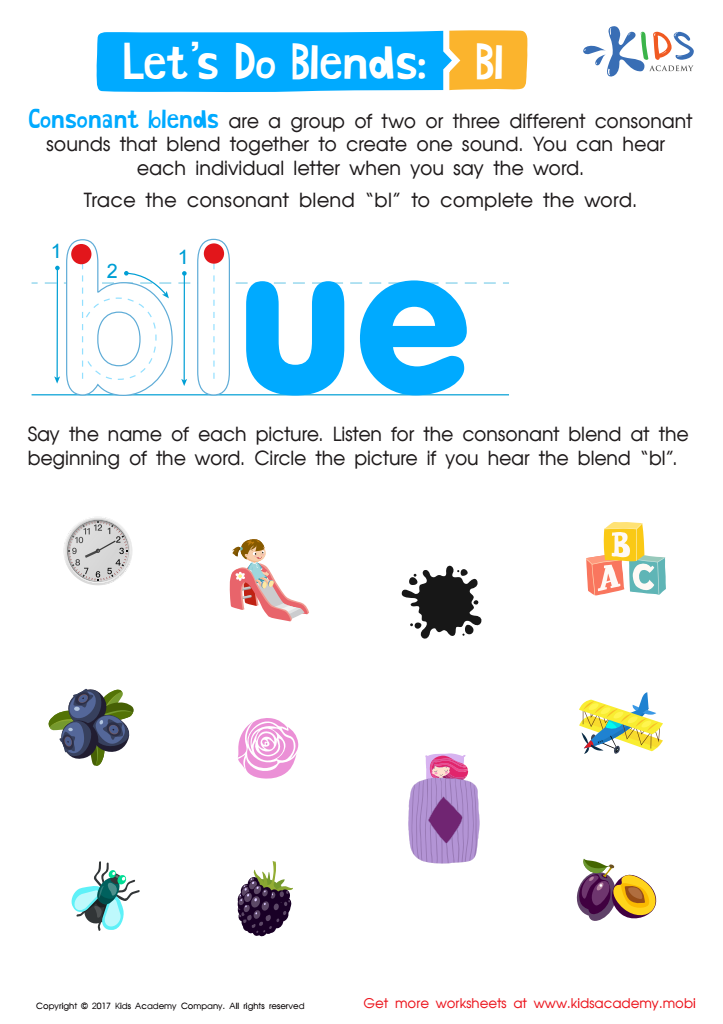

Beginning Blends: "Bl" Words Worksheet
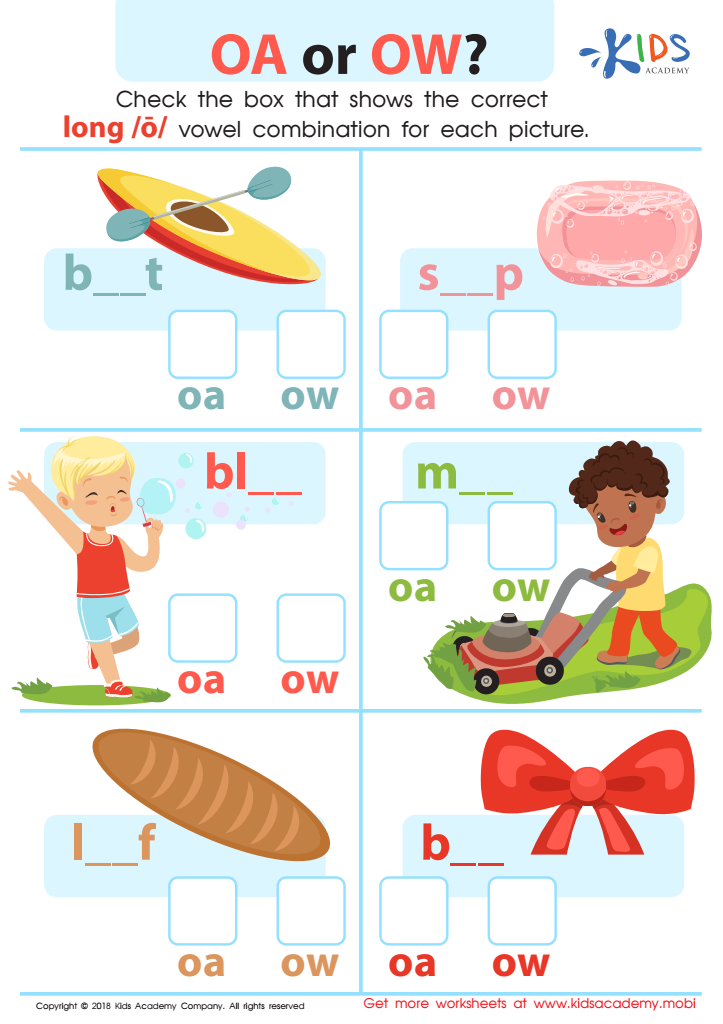

Reading: OA or OW Worksheet


Short Vowels /e/, /i/, and /u/ Worksheet
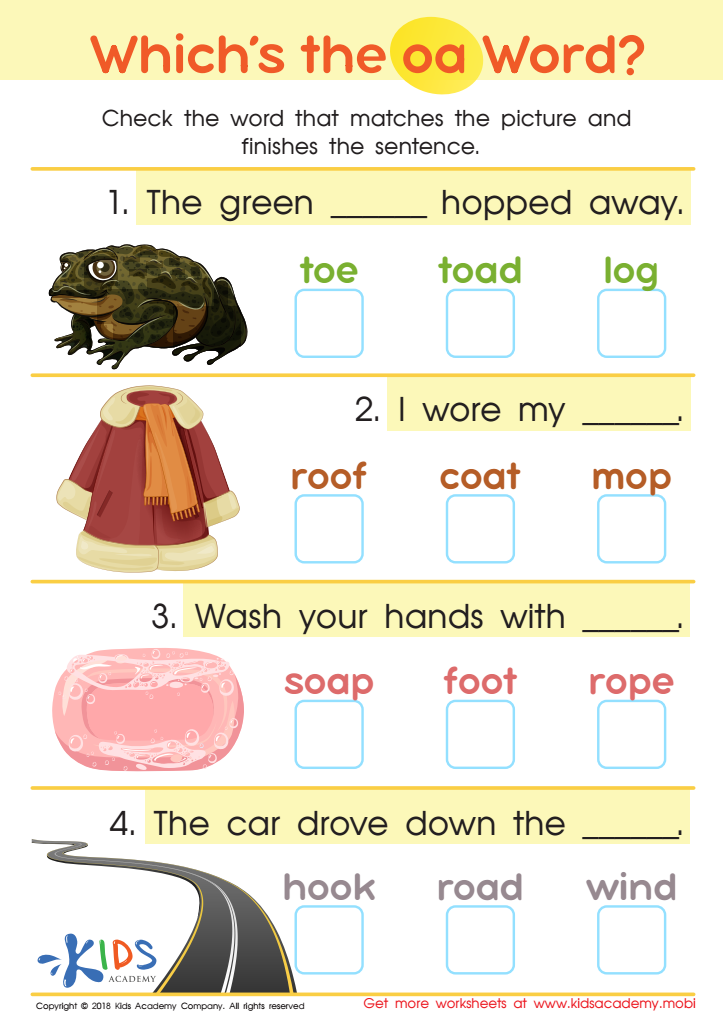

Which's the OA Word? Worksheet
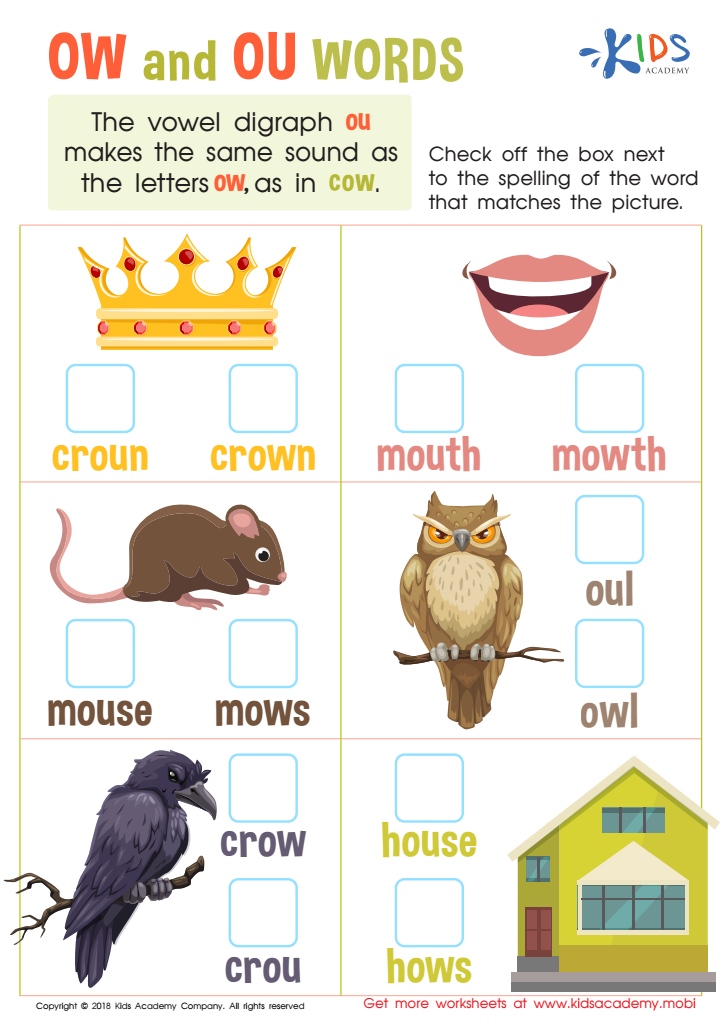

Reading: OW and OU Words Worksheet
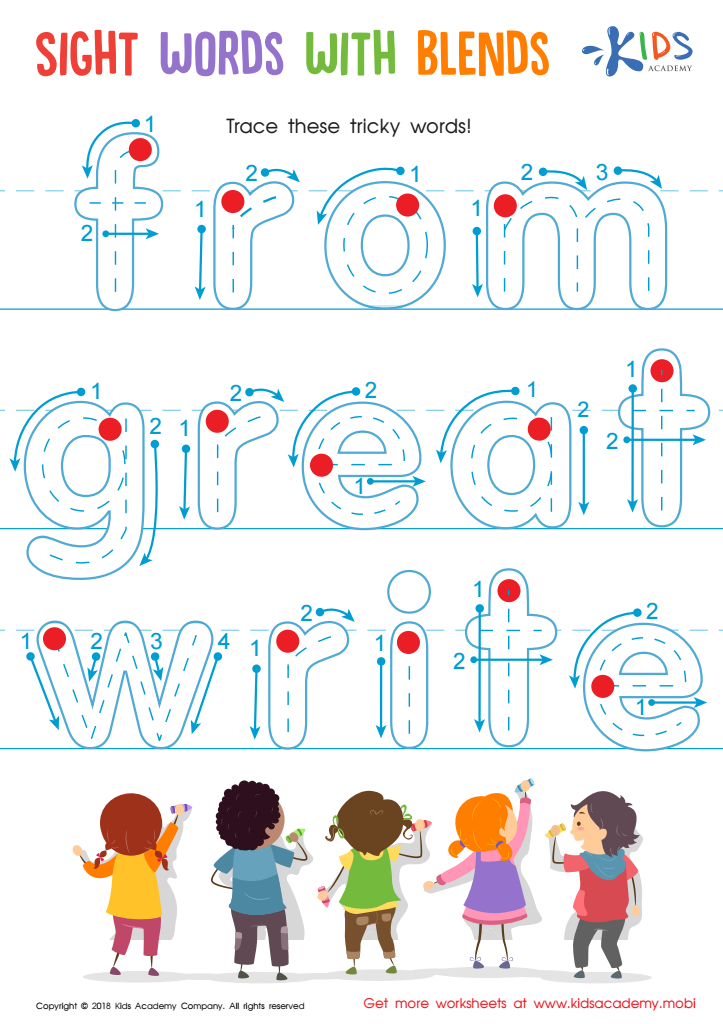

Sight Words with Blends Worksheet
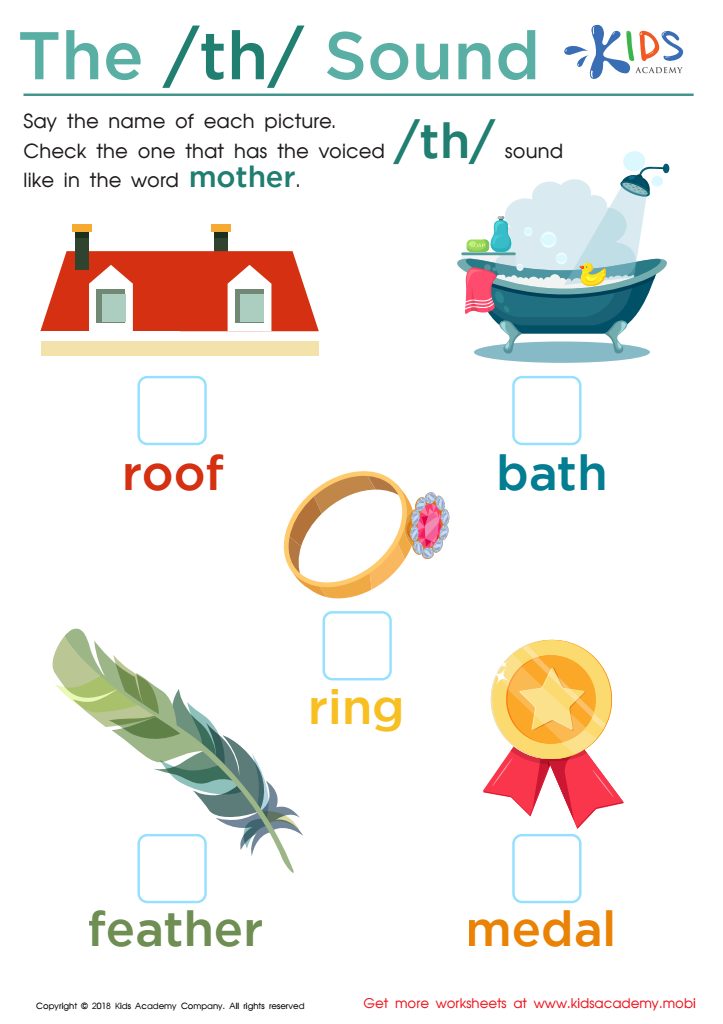

The /th/ Sound Worksheet
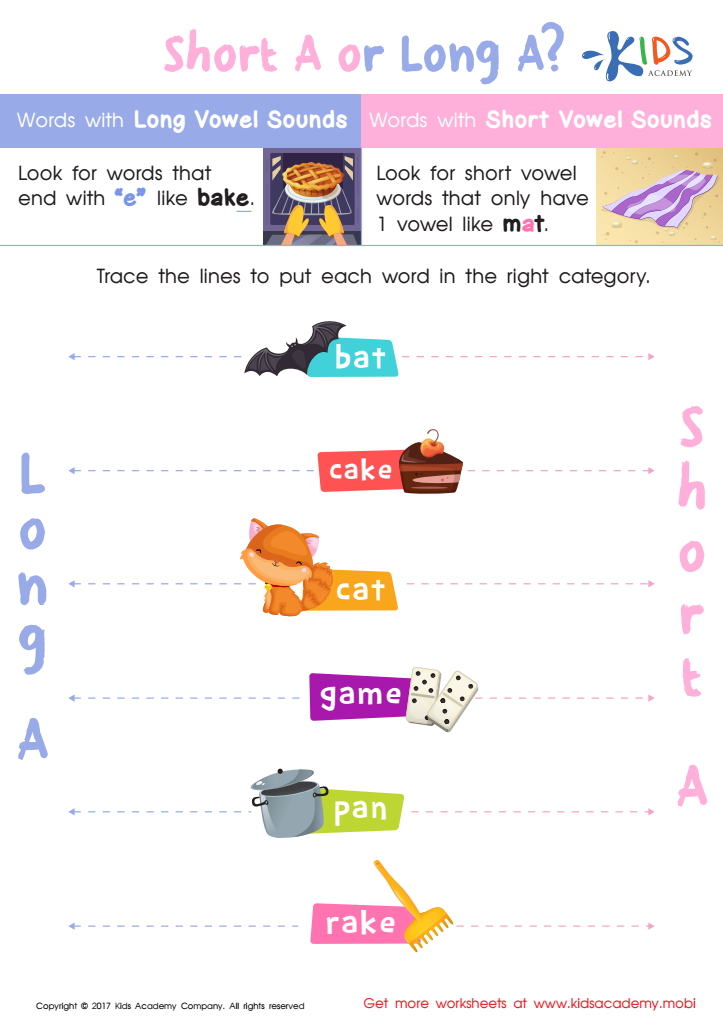

Short /a/ or Long /a/? Worksheet
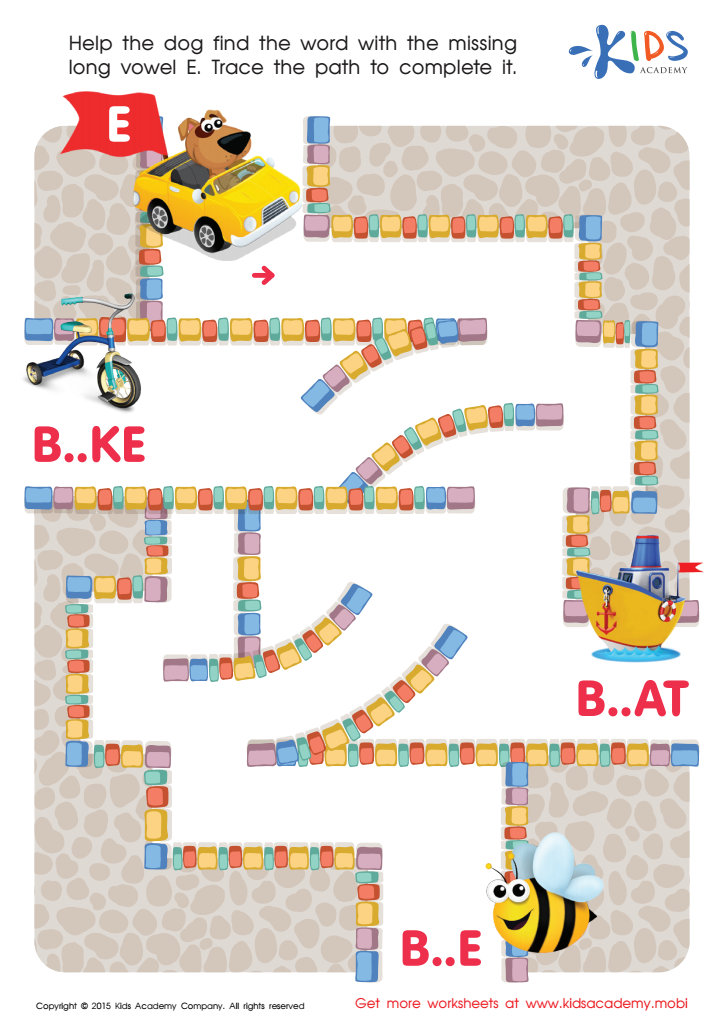

Long Vowel Sound E Worksheet
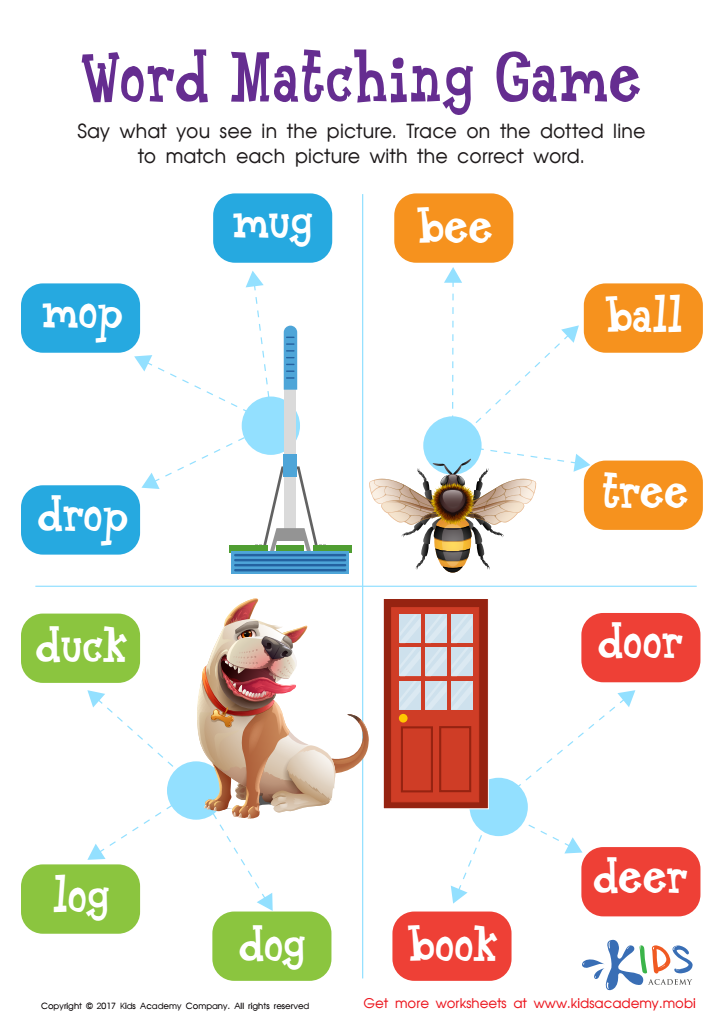

Word Matching Game Worksheet
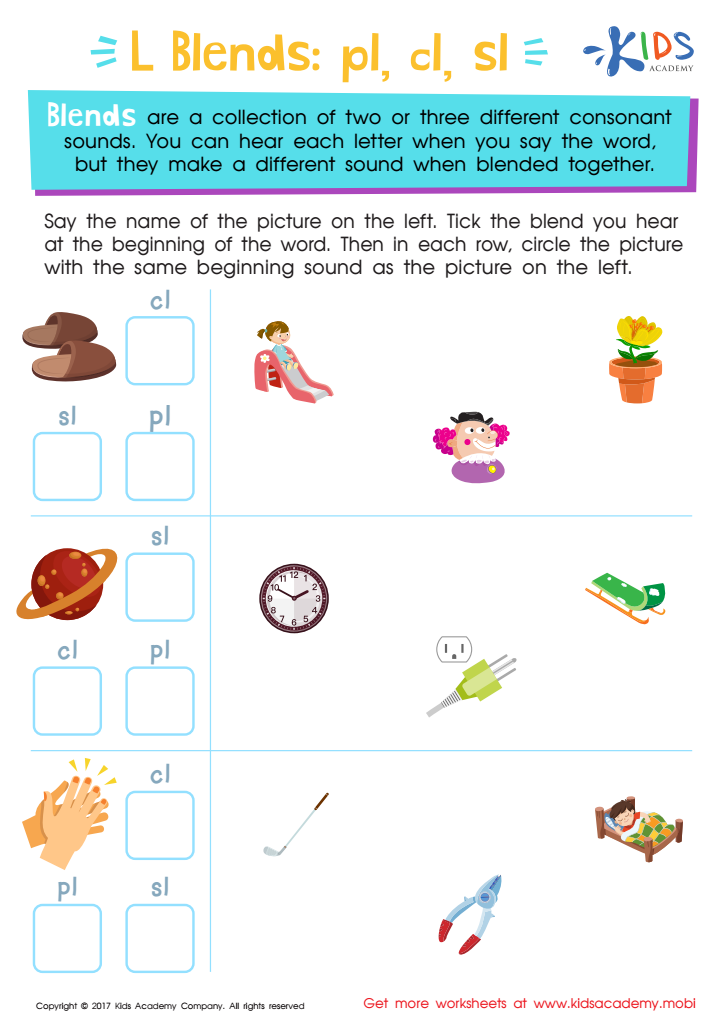

L Blends: "Pl", "Cl" and "Sl" Printable


Short Vowel Eggs Worksheet
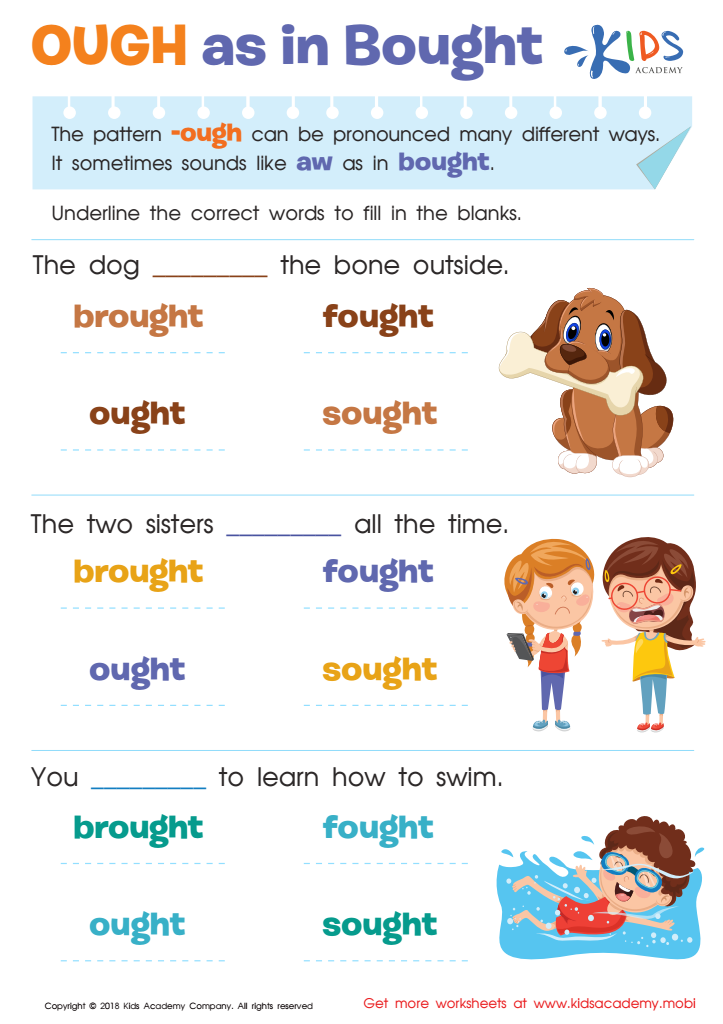

OUGH as in Bought Worksheet
Spelling practice with the normal alphabet for ages 4-7 is crucial for several developmental needs. First, it aligns with critical brain development stages where children are highly receptive to learning. Engaging with the alphabet and mastering spellings lays the foundation for reading and writing, essential skills for academic success.
Spelling practice enhances phonemic awareness, which is the ability to hear, identify, and manipulate phonemes. This foundational skill is vital for reading fluency and understanding. When children practice spelling, they also improve their vocabulary and comprehension, setting a robust base for communication skills.
Additionally, a consistent spelling routine fosters cognitive development. It boosts memory, concentration, and pattern recognition. These activities often involve fine motor skills, crucial for writing and other tasks requiring hand-eye coordination.
Moreover, early spelling practice nurtures self-confidence and a sense of achievement. Each correct spelling reinforces positive sentiments towards learning, igniting a lifelong curiosity and appreciation for education.
Parents and teachers should prioritize this because literacy is intertwined with a child's overall academic and social-emotional development. Without a strong spelling foundation, children may struggle with reading, writing, and expressing ideas, impacting their broader academic journey and everyday interactions.
 Assign to My Students
Assign to My Students












